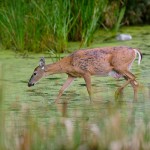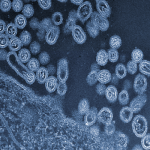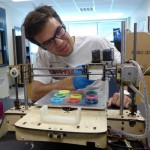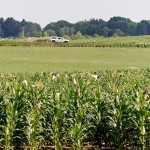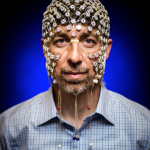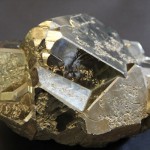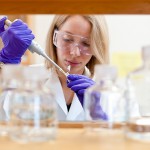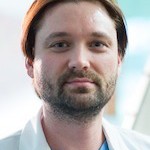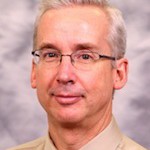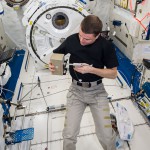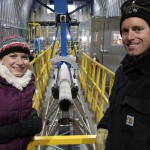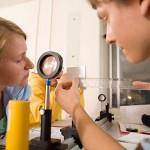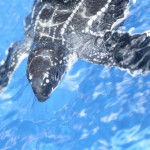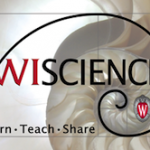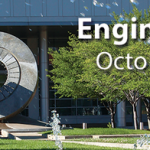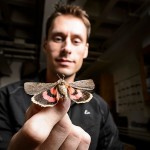Category Science & Technology
Satellite history at UW–Madison comes full circle with award
Michael Pavolonis thinks of himself as a volcano guy.
Ecologist/hunter talks deer, plants, hunters and balance
UW-Madison Professor of Botany Donald Waller is a pioneer in exploring the impact of deer in natural habitats. For more than 20 years, Waller - who counts himself among the state's deer hunters - has led research on the economic, health and environmental impacts of deer, including:
Halting the hijacker: Cellular targets to thwart influenza virus infection
The influenza virus, like all viruses, is a hijacker. It quietly slips its way inside cells, steals the machinery inside to make more copies of itself, and then - having multiplied - bursts out of the cell to find others to infect.
Full color 3-D printing takes top prize in Collegiate Inventors Competition
Innovative 3-D printing technology came out on top as Spectrom - developed by a University of Wisconsin–Madison team that includes Cedric Kovacs-Johnson, Charles Haider and Taylor Fahey - won first place in the undergraduate category of the Collegiate Inventors Competition.
Crops play a major role in the annual CO2 cycle increase
In a study published Wednesday, Nov. 19, in Nature, scientists at Boston University, the University of New Hampshire, the University of Michigan, the University of Minnesota, the University of Wisconsin–Madison and McGill University show that a steep rise in the productivity of crops grown for food accounts for as much as 25 percent of the increase in this carbon dioxide (CO2) seasonality.
Imagination, reality flow in opposite directions in the brain
As real as that daydream may seem, its path through your brain runs opposite reality. Aiming to discern discrete neural circuits, researchers at the University of Wisconsin–Madison have tracked electrical activity in the brains of people who alternately imagined scenes or watched videos.
Scientists get to the heart of fool’s gold as a solar material
As the installation of photovoltaic solar cells continues to accelerate, scientists are looking for inexpensive materials beyond the traditional silicon that can efficiently convert sunlight into electricity.
Grad program honored for closing science-society gap
The University of Wisconsin–Madison’s Neuroscience and Public Policy Program was honored by the Society for Neuroscience with the Neuroscience Graduate Program Achievement Award.
Morgridge scientists find way to ‘keep the lights on’ for cell self-renewal
One remarkable quality of pluripotent stem cells is they are immortal in the lab, able to divide and grow indefinitely under the right conditions. It turns out this ability also may exist further down the development path, with the workhorse progenitor cells responsible for creating specific tissues.
New master’s program in energy conservation is first of its kind
A new professional master's program will launch at the University of Wisconsin–Madison in fall 2015 and become the first in the world specifically designed to train analytically minded students to evaluate energy efficiency and other resource-conservation initiatives.
UW team’s plants return to Earth after growing in space
Researchers at Simon Gilroy's lab in the Department of Botany at the University of Wisconsin–Madison expect to greet a truck this afternoon that is carrying small containers holding more than 1,000 frozen plants that germinated and grew aboard the International Space Station.
UW-Madison scientist receives award to save babies, a diaper at a time
She woke up in her hospital room feeling nothing short of desperation. Katie Brenner remembered giving birth to a tiny daughter hours earlier but the doctors and nurses had whisked the preterm infant away for care. She hadn’t seen little Ruthie since. “I want to meet my daughter,” the normally polite Brenner demanded of the hospital staff. Her little girl is now a healthy 6-year-old and for that, Brenner is thankful. But she knows the story ends much differently for too many families. Doing something about it has inspired her scientific career.
They know the drill: UW leads the league in boring through ice sheets
Hollow coring drills designed and managed by UW–Madison’s Ice Drilling Design and Operations (IDDO) program are used to extract ice cores that can analyze the past atmosphere. Shaun Marcott, an assistant professor of geoscience at UW–Madison, was the first author of a paper published today in the journal Nature documenting carbon dioxide in the atmosphere between 23,000 and 9,000 years ago, based on data from an 11,000-foot hole in Antarctica.
Report, experts analyze surging STEM activity at UW–Madison
A recent report on instructional activity in STEM (science, technology, engineering and math) disciplines at the University of Wisconsin–Madison shows significant advances in enrollment and degrees since 2000, which campus experts attribute to a number of factors, including job placement, greater career opportunities and enhanced teaching methods.
Plump turtles swim better: First models of swimming animals
For the first time, researchers at the University of Wisconsin–Madison, Florida Atlantic University (FAU), and the National Oceanic and Atmospheric Administration (NOAA) have measured the forces that act on a swimming animal and the energy the animal must expend to move through the water.
WISCIENCE to expand possibilities for science education, outreach
The University of Wisconsin–Madison’s Institute for Biology Education is announcing its expansion to become the Wisconsin Institute for Science Education and Community Engagement, or WISCIENCE. The new mission extends across the natural sciences and expands responsibility for facilitating cross-campus collaboration and coordination in the areas of science outreach and support for groups underrepresented in science.
Engineering alumni honored with Distinguished Achievement Awards
The University of Wisconsin–Madison College of Engineering will honor the achievements of eight distinguished alumni during the 67th annual Engineers’ Day celebration Friday, Oct. 24.
Wisconsin’s new ‘bug guy,’ insect detective arrives on campus
His favorite insect is one he has actually never seen alive in the wild. It lives on snowfields and glaciers in the American West, aptly named an ice crawler. But PJ Liesch, the University of Wisconsin–Madison’s new “bug guy,” continues to search for it. “I’ve been out West looking for them a couple of times and haven’t had any luck, so they’re kind of one I have on my bucket list, just to see one of those out in the wild,” says Liesch. The insect specialist officially took over as manager of the UW–Madison Insect Diagnostic Lab this summer.

